
FRANCHISE DIRECTORY
Discover the Premier Franchise Opportunities For Sale in the
Unlock Your Business Potential with Top Franchises For Sale
Select an industry to see subcategories.
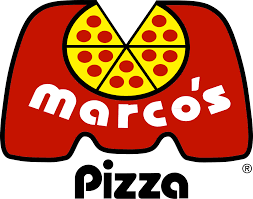
Marco's Pizza
Tony Libardi, Co-CEO & President
- Marco's Pizza is a quick-service restaurant (QSR) franchise.
- It specializes in pizza, subs, salads, and related Italian-American food items.
- It operates primarily through franchised locations.
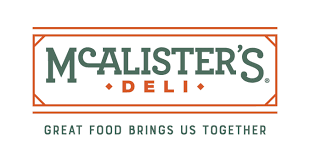
McAlister's Deli
Mike Freeman, Chief Brand Officer
- McAlister's Deli is a quick-service restaurant (QSR) franchise.
- It specializes in deli-style sandwiches, salads, soups, potatoes, and sweet tea.
- It operates primarily through franchised locations.
- McAlister's Deli is part of Focus Brands.

McDonald's
Chris Kempczinski, CEO
- McDonald's is a quick-service restaurant (QSR) franchise.
- It operates through a combination of franchised and company-owned restaurants.
- It is also very much a real estate company.
- McDonald's Corporation is a publicly traded company.
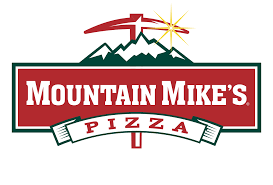
Mountain Mike's Pizza
Chris L. Britt and Edmond F. St. Geme, Co-CEOs
- Mountain Mike's Pizza is a quick-service restaurant (QSR) franchise.
- It specializes in pizza, particularly large pizzas, along with other Italian-American food items like wings, salads, and garlic bread.
- It operates primarily through franchised locations.
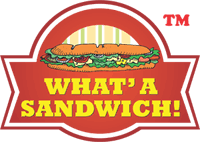
What-A-Sandwich
What-A-Sandwich
Overview of What-A-Sandwich Franchise:
What-A-Sandwich is a popular and well-established franchise in the fast-casual dining sector, specializing in offering a wide variety of gourmet sandwiches, wraps, and side items. The brand is known for delivering a high-quality, fresh, and satisfying sandwich experience, catering to customers who seek both convenience and exceptional taste. What-A-Sandwich has built a strong reputation for its commitment to using only fresh, premium ingredients and creating sandwiches that cater to a wide range of preferences, from classic options to more unique and creative choices. With an emphasis on customization and a customer-centric approach, the franchise has successfully attracted a loyal following and offers a promising opportunity for prospective franchisees looking to enter the thriving food and beverage industry.
Key Points of What-A-Sandwich Franchise:
-
Business Model and Concept:
- What-A-Sandwich operates as a fast-casual restaurant franchise, offering a menu centered around high-quality sandwiches, wraps, and sides in a quick-service format.
- The brand focuses on providing customers with a diverse selection of fresh sandwiches made with premium ingredients that can be customized to suit individual tastes.
- The franchise model is designed to appeal to a wide range of customers, including busy professionals, students, families, and health-conscious consumers, seeking a delicious yet convenient meal.
- The concept allows for scalability, with opportunities for franchisees to open locations in various formats, including standalone units, kiosks, and mall-based stores.
-
Menu Offering:
- The What-A-Sandwich menu includes a wide range of gourmet sandwiches, including classic options like ham, turkey, and chicken, as well as more unique offerings featuring a variety of meats, cheeses, and toppings.
- The brand also offers wraps, salads, soups, and sides such as fries, chips, and fresh fruit, catering to different tastes and dietary preferences.
- Sandwiches and wraps can be fully customized, allowing customers to choose from a variety of breads, fillings, condiments, and vegetables, ensuring a personalized meal experience.
- The menu also includes vegetarian, vegan, and gluten-free options, ensuring that What-A-Sandwich can serve a wide customer base with varying dietary needs.
-
Quality and Freshness:
- What-A-Sandwich places a strong emphasis on using only the freshest and highest-quality ingredients. Freshly baked bread, high-quality deli meats, and fresh vegetables are central to the brand's offerings.
- The franchise takes pride in creating sandwiches that are not only delicious but also made with ingredients that meet high standards of quality and nutrition.
- The brand’s commitment to freshness is reflected in its daily preparation of ingredients and the on-site assembly of sandwiches, ensuring that customers enjoy a freshly made meal every time.
-
Customization and Customer Experience:
- One of the key aspects of What-A-Sandwich’s appeal is the ability for customers to fully customize their orders, creating sandwiches that suit their personal preferences and dietary requirements.
- The restaurant layout is designed to allow customers to watch their sandwiches being made fresh to order, enhancing the experience and ensuring transparency in food preparation.
- Staff are trained to deliver excellent customer service, ensuring that customers have a positive and enjoyable experience from the moment they enter the store to the moment they finish their meal.
-
Training and Support for Franchisees:
- What-A-Sandwich provides comprehensive training to new franchisees, covering all aspects of restaurant operations, including food preparation, customer service, inventory management, and employee training.
- Franchisees are also trained in maintaining the brand’s standards for food quality, cleanliness, and operational efficiency, ensuring consistency across all locations.
- Ongoing support is provided in the form of marketing materials, operational guidance, and business development resources to help franchisees grow and manage their businesses successfully.
-
Franchisee Requirements:
- Prospective franchisees should have a passion for the food and beverage industry, with a strong focus on customer service and operational excellence.
- While prior restaurant experience is beneficial, it is not required, as What-A-Sandwich offers comprehensive training to ensure franchisees are well-equipped to run their business.
- Franchisees must have the financial capacity to meet the initial investment requirements, which include franchise fees, equipment, store setup, and inventory costs.
- A willingness to adhere to the brand’s standards and guidelines, as well as an entrepreneurial mindset, is essential for success in the What-A-Sandwich franchise system.
-
Store Design and Atmosphere:
- What-A-Sandwich locations are designed to create a welcoming and comfortable atmosphere for customers, with clean, modern interiors and an open kitchen design where customers can view the sandwich-making process.
- The store layout emphasizes functionality and efficiency, with clear signage and easy navigation to ensure a smooth and enjoyable customer experience.
- The focus is on creating an inviting space where customers can enjoy their meals in a casual setting, whether they choose to dine in or take their orders to go.
-
Marketing and Branding:
- What-A-Sandwich supports its franchisees with a comprehensive marketing strategy designed to build brand recognition and drive foot traffic to its locations.
- Franchisees benefit from corporate-led marketing campaigns, social media promotions, loyalty programs, and seasonal offers that help attract new customers and retain existing ones.
- The brand’s messaging focuses on freshness, quality, and customization, appealing to customers looking for a personalized and satisfying dining experience.
- Franchisees are also encouraged to engage in local marketing efforts, such as hosting events, offering promotions, and collaborating with local businesses to increase visibility in their communities.
-
Community Engagement:
- What-A-Sandwich encourages franchisees to engage with their local communities by supporting charitable initiatives, hosting local events, and participating in community-driven programs.
- This community involvement helps to build a strong local presence, fostering customer loyalty and enhancing the brand’s reputation as a business that cares about its customers and the neighborhoods it serves.
- The brand also encourages environmentally conscious practices, such as sustainable sourcing of ingredients and eco-friendly packaging, aligning with the growing demand for sustainability in the food service industry.
-
Growth Potential:
- The What-A-Sandwich franchise offers strong growth potential, particularly in regions where fast-casual dining and gourmet sandwiches are in high demand.
- The franchise model is adaptable to a variety of locations, including high-traffic areas such as shopping malls, business districts, and residential neighborhoods, allowing for flexibility in site selection.
- As consumer demand for fresh, high-quality, and customizable meals continues to grow, What-A-Sandwich is well-positioned to expand its footprint and attract a wide range of customers.
- Profitability and ROI:
- The What-A-Sandwich franchise offers strong potential for profitability due to its relatively low overhead costs, high-quality product offerings, and customizable menu.
- The quick-service model ensures high turnover, while the ability to customize orders allows for higher profit margins, as customers can opt for premium add-ons or ingredients.
- Franchisees can expect a favorable return on investment (ROI) through effective cost control, operational efficiency, and strong customer loyalty, with the potential for long-term business growth.
In conclusion, What-A-Sandwich offers a lucrative franchise opportunity for individuals looking to enter the fast-casual dining industry. With a strong focus on fresh, high-quality sandwiches, customizable options, and exceptional customer service, the franchise provides a solid foundation for business success. The support, training, and marketing resources offered to franchisees ensure that they can effectively manage and grow their businesses, while the brand’s emphasis on quality and convenience helps maintain a loyal customer base.
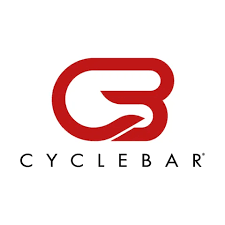
Overview of CycleBar Franchise
CycleBar is a premium indoor cycling fitness franchise that focuses on providing a high-energy, engaging, and motivating experience for individuals who enjoy cycling as a form of exercise. It is designed to offer a fun and exhilarating workout environment while focusing on the physical and mental benefits of indoor cycling. With its high-quality facilities, expert instructors, and a strong sense of community, CycleBar aims to provide a unique fitness experience that is accessible to riders of all fitness levels. CycleBar has expanded rapidly due to its innovative approach, combining great music, lighting, and an immersive cycling experience to attract a wide variety of members.
Key Features of the CycleBar Franchise
-
Premium Indoor Cycling Experience:
- CycleBar focuses on delivering an exceptional indoor cycling experience with high-quality facilities and state-of-the-art equipment. The franchise's studios are designed to offer a premium experience, with top-of-the-line bikes, sound systems, and lighting that enhance the workout.
- The cycling classes are designed to appeal to a wide audience, whether they are beginners looking to get fit or seasoned cyclists looking for an intense and challenging workout.
-
Variety of Cycling Classes:
- CycleBar Classes: CycleBar offers different types of cycling classes to cater to various fitness goals and preferences. These include high-intensity interval training (HIIT) classes, endurance rides, strength-building classes, and recovery sessions.
- Performance Metrics: During classes, riders can track their performance on screens that display key metrics such as speed, resistance, calories burned, and heart rate. This data helps riders monitor progress and set goals.
- Community Rides: CycleBar hosts themed and community events, including charity rides, competitions, and group challenges that help build camaraderie among members.
-
State-of-the-Art Equipment:
- CycleBar franchises are equipped with state-of-the-art stationary bikes designed to provide a smooth and high-performance cycling experience. The bikes are adjustable to suit riders of all sizes, providing comfort and efficiency during the workout.
- The studios feature advanced sound and lighting systems to create an immersive experience. The lighting is often synchronized with the music to energize riders, enhancing the overall experience and motivating them to push their limits.
-
Motivating Instructors and Coaches:
- Each CycleBar studio is staffed with certified and experienced cycling instructors who provide guidance, motivation, and personalized attention to riders. These instructors help maintain high energy in every class and ensure that members stay engaged throughout the ride.
- Instructors also create playlists and develop class themes that fit the goals of the session, whether it’s an intense interval workout or a calming recovery ride.
-
Music and Atmosphere:
- The cycling experience at CycleBar is heavily driven by music. The franchise creates high-energy playlists that are designed to inspire and motivate riders throughout the session.
- The lighting in the studios is synchronized with the music, creating a dynamic and immersive atmosphere that enhances the overall cycling experience and keeps participants energized.
-
Customized Membership Plans:
- CycleBar offers a variety of membership options, including single-class passes, monthly memberships, and class packages. Members can choose the option that best fits their fitness schedule and goals.
- Flexible membership plans cater to both casual riders who may only want occasional classes and regular riders who wish to attend multiple sessions each week.
-
Community Focus:
- One of the key features of CycleBar is its focus on building a strong, supportive community of riders. The franchise fosters a sense of belonging and motivation, where participants encourage one another to achieve their fitness goals.
- CycleBar offers events, challenges, and themed rides that bring people together, creating a fun and social atmosphere that keeps riders coming back for more.
-
Franchisee Support and Training:
- CycleBar provides comprehensive training and support for franchisees to ensure the successful launch and operation of each location. This includes training in studio operations, marketing strategies, hiring and training staff, and member retention techniques.
- Franchisees also benefit from a robust support network that includes ongoing operational assistance, access to marketing tools, and guidance on expanding the business.
-
Marketing and Branding:
- CycleBar has a strong, recognizable brand in the fitness industry, and franchisees are provided with extensive marketing support. This includes access to national advertising campaigns, local marketing materials, and strategies for building brand awareness in the community.
- The CycleBar brand is known for its high-energy, fun, and inclusive atmosphere, and franchisees benefit from the established reputation of the brand to attract new members and retain existing ones.
-
Scalability and Growth Potential:
- The CycleBar franchise offers significant growth potential for franchisees. With the increasing popularity of boutique fitness studios and the growing demand for cycling-based workouts, there is ample opportunity for expansion.
- Franchisees have the ability to open additional locations, benefiting from the scalability of the business model. The success of each studio can also contribute to the broader brand’s growth as the demand for indoor cycling continues to rise.
Conclusion
CycleBar is a unique and premium fitness franchise that offers an immersive and motivating indoor cycling experience. With its high-quality facilities, variety of cycling classes, and emphasis on music and community, CycleBar attracts a diverse range of individuals looking for an engaging and effective workout. The franchise offers franchisees a proven business model, strong brand recognition, and comprehensive support to help ensure their success. With a growing demand for cycling-based fitness and a focus on community and motivation, CycleBar presents an exciting opportunity for those looking to invest in the booming fitness industry.
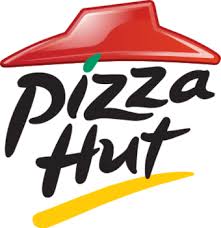
Overview of Pizza Hut Franchise
Pizza Hut is one of the most iconic and successful pizza brands globally, renowned for its extensive menu, innovative service models, and commitment to quality. Founded in 1958, Pizza Hut has become a household name with its wide array of pizzas, pastas, sides, and desserts. Over the years, it has established itself as a leader in the global pizza industry, with thousands of locations across numerous countries.
Pizza Hut’s franchise model offers entrepreneurs a proven business system with extensive brand recognition, robust support, and a history of success in the competitive fast-casual dining sector. With a strong presence in both dine-in and delivery services, Pizza Hut caters to a wide demographic, from families looking for a relaxed dining experience to individuals seeking quick, convenient meals at home. The franchise opportunity provides various models, including traditional dine-in restaurants, carry-out, and delivery-only units, allowing flexibility for franchisees depending on their market and location.
Key Features of Pizza Hut Franchise
-
Menu and Product Offerings:
- Pizzas: Pizza Hut’s core offering is its wide range of pizzas, from traditional crust options like thin crust and hand-tossed to specialty pizzas with unique flavors and premium toppings. They offer both individual-sized pizzas and larger family-style options.
- Signature Pizzas: Some of the brand's signature pizzas include the stuffed crust pizza, the pan pizza, and various limited-edition or seasonal pizzas that keep the menu fresh and exciting.
- Pasta: Pizza Hut also offers a variety of pasta dishes, including classic options like spaghetti, lasagna, and specialty pastas that cater to different tastes and preferences.
- Sides and Appetizers: Pizza Hut provides a diverse selection of sides, such as garlic bread, chicken wings, mozzarella sticks, and salads, which complement the pizza menu. These sides enhance the overall dining experience and encourage higher ticket sales.
- Desserts: To round out the meal, Pizza Hut offers various dessert options, including its famous cinnamon sticks, chocolate chip cookies, and other sweet treats that appeal to customers of all ages.
- Beverages: Pizza Hut serves a variety of soft drinks, including sodas, juices, and iced teas, along with specialty drinks that complement the menu.
-
Franchisee Support and Training:
- Comprehensive Training Program: Pizza Hut provides a robust initial training program for its franchisees. This training covers all aspects of running a franchise, from food preparation and customer service to financial management and marketing. Franchisees also receive guidance on how to manage staff, adhere to health and safety standards, and maintain consistent food quality.
- Ongoing Operational Support: Franchisees receive ongoing support from the Pizza Hut corporate team. This support includes regular check-ins from area managers, as well as advice and guidance on improving operational efficiency, marketing, and customer satisfaction.
- Marketing and Advertising Assistance: Pizza Hut helps its franchisees with marketing campaigns, offering national advertising resources, promotional material, and digital marketing strategies. Localized marketing support is also available to ensure franchisees can engage with their specific customer base effectively.
- Technology and Software: Franchisees are equipped with Pizza Hut’s advanced point-of-sale (POS) systems, inventory management tools, and operational software. These tools help streamline operations, track sales, and manage inventory, ensuring efficiency across all aspects of the business.
-
Business Model and Revenue Streams:
- Dine-In and Takeaway: Traditional Pizza Hut restaurants offer dine-in services, where customers can enjoy a full-service experience. Takeaway and carry-out orders are also an integral part of the revenue stream.
- Delivery Services: One of the major revenue drivers for Pizza Hut franchises is its delivery service. Pizza Hut has a well-established and efficient delivery model, allowing customers to enjoy pizza in the comfort of their own homes. Franchisees can either manage in-house delivery drivers or partner with third-party delivery platforms like UberEats and DoorDash.
- Online Ordering and Mobile App: Pizza Hut has invested heavily in digital platforms. Franchisees benefit from a robust online ordering system and a mobile app that allows customers to place orders for delivery, carry-out, or dine-in. This system increases convenience for customers and drives higher sales volumes.
- Catering Services: Many Pizza Hut locations offer catering services for large events, parties, and corporate functions. Catering orders provide an additional revenue stream, particularly in urban areas where large gatherings are common.
- Multi-Unit Ownership: Pizza Hut offers opportunities for franchisees to expand by owning multiple units. Franchisees with multiple locations can benefit from economies of scale, improved marketing efficiency, and stronger brand recognition in the market.
-
Investment and Franchise Costs:
- Initial Franchise Fee: The initial franchise fee for Pizza Hut provides franchisees with the right to use the brand’s name and business model. This fee grants access to Pizza Hut’s comprehensive training, marketing, and operational support.
- Total Initial Investment: The total investment to open a Pizza Hut franchise includes costs for securing a location, constructing or remodeling the store, purchasing equipment, and stocking inventory. This investment can vary significantly depending on the store format, size, and location. A typical investment may range from $300,000 to $2 million, depending on the model chosen.
- Royalty Fees: Franchisees are required to pay a royalty fee, which is a percentage of their gross sales. This fee helps fund national advertising and corporate support services.
- Marketing Fees: In addition to the royalty fee, franchisees also contribute to a marketing fund that supports brand-wide advertising efforts. This ensures that Pizza Hut maintains a strong presence across all markets.
-
Customer Experience and Brand Identity:
- Convenient Ordering and Service: Pizza Hut emphasizes convenience, offering multiple ordering channels including walk-in, phone orders, and online ordering. Their delivery service ensures customers can enjoy their food from the comfort of their own homes.
- Family-Friendly Atmosphere: Traditional Pizza Hut locations are known for their family-friendly dining experience, with spacious seating, kids’ menus, and a welcoming atmosphere for diners of all ages.
- Consistent Quality: One of the key components of Pizza Hut’s brand identity is its commitment to high-quality ingredients and consistent product standards. Franchisees are required to follow strict guidelines to ensure that each pizza and menu item meets the company’s quality expectations.
- Brand Recognition: Pizza Hut’s distinctive red roof and branding are immediately recognizable worldwide. The brand’s strong presence in the fast-casual dining and delivery sectors gives franchisees the advantage of an established customer base and a trusted reputation.
-
Growth Potential and Expansion:
- Global Reach: Pizza Hut has a significant international presence, with locations in over 100 countries. As part of the Yum! Brands portfolio, Pizza Hut has the potential for continued global expansion, making it an attractive option for entrepreneurs interested in international franchise opportunities.
- Multiple Franchise Models: Pizza Hut offers different franchise models, including dine-in restaurants, carry-out only units, and delivery-only stores. This flexibility allows franchisees to choose the model that best suits their market and financial situation.
- Support for Multiple Units: For ambitious franchisees, Pizza Hut offers multi-unit franchise opportunities, allowing entrepreneurs to build a portfolio of locations over time. The scalability of the business model makes it easier for experienced operators to grow their investment.
-
Sustainability and Community Engagement:
- Commitment to Sustainability: Pizza Hut is dedicated to sustainability, with initiatives aimed at reducing waste, conserving energy, and sourcing ingredients responsibly. Franchisees are encouraged to implement environmentally friendly practices in their operations, contributing to the brand’s commitment to sustainability.
- Community Involvement: Many Pizza Hut franchises engage with their local communities through charity events, sponsorships, and school programs. This community-oriented approach enhances brand loyalty and strengthens the relationship between franchisees and their customers.
Conclusion
The Pizza Hut franchise offers a well-established business model with strong brand recognition, a comprehensive support system, and multiple revenue streams. With a wide range of menu options, a focus on quality, and a commitment to customer service, Pizza Hut provides franchisees with the tools necessary to succeed in the competitive pizza industry. Whether through dine-in restaurants, carry-out units, or delivery services, Pizza Hut offers a flexible and scalable franchise opportunity with the potential for significant growth and profitability.
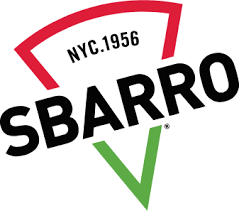
Sbarro Pizza is a well-established pizza franchise known for its delicious, authentic Italian-style pizza and casual dining experience. With its roots in New York City, Sbarro has become synonymous with quick, high-quality pizza, offering a unique slice of Italy in an accessible, fast-casual setting. The franchise is particularly famous for its large, New York-style pizza slices and fresh ingredients, creating a customer-friendly environment in both mall food courts and standalone locations. Over the years, Sbarro has built a strong reputation for its commitment to quality, consistency, and customer satisfaction.
Here are the key aspects of the Sbarro Pizza franchise:
- Vision: Sbarro strives to bring the authentic flavors of Italy to customers worldwide, focusing on fresh ingredients, traditional recipes, and fast service to create an enjoyable dining experience.
- Mission: The mission of Sbarro is to deliver high-quality, delicious Italian cuisine, particularly pizza, to customers at an affordable price. With a focus on efficiency and consistency, Sbarro ensures each customer enjoys fresh, satisfying meals in a welcoming and convenient setting.
- Pizza: Sbarro is best known for its large, New York-style pizza slices. The menu features a wide range of classic pizzas like Pepperoni, Cheese, Margherita, and specialty pizzas with various toppings. Their pizzas are made with freshly prepared dough and topped with 100% mozzarella cheese, ensuring authenticity and taste.
- Pizza by the Slice: One of Sbarro's standout features is its "pizza by the slice" offering, which makes it quick and convenient for customers to grab a hot slice of pizza without having to wait for a whole pizza to be made.
- Pasta: In addition to pizza, Sbarro offers a variety of pasta dishes, such as baked ziti, spaghetti, and lasagna. These hearty Italian dishes provide additional menu options for customers who prefer pasta over pizza.
- Subs and Sandwiches: Sbarro's menu also includes a selection of hot subs and sandwiches, filled with classic Italian ingredients such as meats, cheeses, and vegetables.
- Salads and Sides: The franchise offers a range of fresh salads, including classic Italian salads, as well as side items like garlic breadsticks and breaded chicken.
- Desserts and Beverages: For dessert, Sbarro provides treats like cheesecake, cannoli, and other Italian-inspired sweets, in addition to a selection of soft drinks and other beverages.
- Franchise Type: Sbarro operates primarily under a traditional franchise model, offering both single-unit and multi-unit franchise opportunities. The franchise system allows entrepreneurs to open multiple outlets or a single location depending on their goals and resources.
- Support System: Franchisees receive comprehensive support, including training programs, marketing assistance, site selection help, and ongoing operational guidance. Sbarro’s team provides franchisees with the tools needed to succeed in running a profitable business.
- Franchise Fee: The franchise fee for Sbarro typically includes the cost of the franchise license, training, and other startup expenses. The total investment varies depending on location, size, and specific requirements of each franchise outlet.
- Casual Dining Environment: Sbarro’s restaurant design typically reflects a fast-casual dining experience with a comfortable, easy-to-navigate layout. The atmosphere is welcoming, designed to accommodate customers quickly, especially in high-traffic areas such as malls and food courts.
- Open Kitchen Concept: Many Sbarro locations feature an open kitchen design, allowing customers to see the food being prepared, which enhances transparency and adds to the overall customer experience.
- Flexible Formats: Sbarro operates in various formats, from smaller food court kiosks to full-service, standalone restaurants. The flexibility in layout and store design allows for a broad range of locations, including shopping malls, airports, and high-traffic commercial areas.
- Fresh, High-Quality Ingredients: Sbarro emphasizes the use of fresh, high-quality ingredients in its pizza and other menu items. Its pizza dough is made fresh daily, and the franchise uses 100% mozzarella cheese, along with fresh vegetables, premium meats, and traditional Italian spices.
- Consistency and Standards: To maintain the same quality and consistency across all locations, Sbarro follows strict guidelines for food preparation, storage, and cooking processes. Franchisees are trained in these processes to ensure the same taste and quality at every store.
- Supplier Relationships: Sbarro has long-standing relationships with suppliers to ensure that it can maintain the consistency and quality of its ingredients, which are crucial to the brand’s reputation.
- Comprehensive Training: Franchisees undergo a thorough training program that covers every aspect of restaurant operations, from food preparation and customer service to staff management and financial control.
- Operational Support: Sbarro provides ongoing support to franchisees to ensure smooth operations. This includes regular check-ins, operational reviews, and assistance with any challenges that may arise.
- Marketing Support: Franchisees receive marketing tools and strategies to help promote their location, including corporate-sponsored advertising campaigns, promotional materials, and local marketing strategies to attract customers.
- Strong Brand Identity: Sbarro has a long-standing presence in the pizza industry and is widely recognized for its New York-style pizza and Italian cuisine. Its branding focuses on quality, tradition, and the authentic Italian experience, which resonates with a broad audience.
- National and Local Marketing: The franchise benefits from national advertising campaigns, including TV and online promotions, which help increase brand awareness. Franchisees can also participate in localized marketing efforts to drive traffic to their specific location.
- Promotions and Special Offers: Sbarro regularly offers special promotions, meal deals, and discounts to attract customers, especially during peak times or holidays. These promotions can help boost sales and customer loyalty.
- Diverse Demographics: Sbarro caters to a wide range of customers, including families, young adults, and pizza enthusiasts. The brand appeals to individuals and groups seeking a quick, satisfying meal, particularly in busy, high-traffic locations like malls and airports.
- Convenience and Affordability: Sbarro’s focus on fast service and affordable pricing makes it a go-to option for customers who are looking for a quick and convenient meal without sacrificing quality.
- Health-Conscious Consumers: Sbarro also offers healthier menu options, including salads and lighter pasta dishes, catering to health-conscious consumers who want a more balanced meal.
- Initial Investment: The investment required to open a Sbarro franchise includes the franchise fee, equipment, store construction, and other startup costs. The total investment varies depending on the store size, location, and type (e.g., mall kiosk vs. standalone location).
- Ongoing Fees: Franchisees are required to pay royalties and marketing fees, which contribute to national advertising and operational support. These fees are generally standard in the industry and are structured to ensure long-term brand success.
- Profitability: The profitability of Sbarro franchises can be influenced by location, management, and local demand. However, the franchise’s focus on affordability, high-quality food, and efficient service often leads to consistent sales and high customer retention.
- Online Ordering and Delivery: Sbarro offers digital ordering options, including online ordering for pick-up and delivery, which caters to the growing demand for convenience in foodservice.
- POS Systems: Franchisees use advanced point-of-sale systems to streamline transactions, track sales, manage inventory, and improve overall operational efficiency.
- Customer Engagement: Sbarro has integrated digital marketing tools, such as loyalty programs and app-based promotions, to engage with customers and encourage repeat business.
- Eco-Friendly Practices: Sbarro is committed to sustainability and reducing its environmental footprint. This includes initiatives to minimize waste, optimize energy use, and explore more sustainable packaging options.
- Sourcing Practices: The brand focuses on sourcing ingredients responsibly, ensuring that it works with suppliers who adhere to ethical and environmentally friendly practices.
- International Presence: Sbarro has a strong presence in several countries around the world, including North America, the Middle East, and Asia. The franchise continues to expand internationally, seeking new markets with a demand for high-quality, fast-casual dining options.
- Franchise Opportunities: Sbarro is actively seeking qualified franchisees in both domestic and international markets, offering opportunities for entrepreneurs to bring the Sbarro brand to new locations globally.
In summary, Sbarro Pizza offers a compelling franchise opportunity for entrepreneurs looking to invest in a well-established, reputable brand with a proven track record. With its focus on high-quality, authentic Italian cuisine, fast service, and an efficient business model, Sbarro continues to thrive in the competitive pizza industry, making it an attractive choice for potential franchisees looking to enter the market.

Snap Fitness 24/7 Franchise Overview
Snap Fitness 24/7 is a leading global fitness franchise that offers round-the-clock gym access to its members. The brand was founded with the aim of providing an affordable, accessible, and convenient fitness solution to people of all fitness levels. With a focus on providing high-quality fitness experiences in a clean, comfortable, and welcoming environment, Snap Fitness has grown into one of the most recognized fitness franchise brands worldwide. The 24/7 model allows members to work out at any time that suits their schedule, a unique selling point that sets it apart from traditional gyms.
Key Points about Snap Fitness 24/7 Franchise
-
Business Model
- 24/7 Gym Access: Snap Fitness operates on a model where members can access the gym at any time of the day or night. This 24/7 availability caters to busy individuals who want flexibility in their workout schedules.
- Affordable Memberships: The franchise offers cost-effective membership plans compared to traditional gyms, making it more accessible to a broader demographic.
- Low Overhead Costs: As a franchise, Snap Fitness gyms are generally smaller in size compared to larger gyms, which results in lower overhead costs for the franchisee.
- Self-service: Snap Fitness often features a self-service model where members can swipe in and out using a keycard, reducing the need for full-time staff on the premises.
-
Support and Training for Franchisees
- Comprehensive Training: Franchisees receive in-depth training on managing the business, customer service, fitness programming, and operating the gym efficiently.
- Ongoing Support: Snap Fitness offers continuous support to franchisees, including marketing assistance, operational advice, and access to a robust franchisee network.
- Technology Integration: Franchisees are provided with software tools that help manage memberships, track financials, and communicate with members.
-
Marketing and Brand Recognition
- National and Local Marketing: Franchisees benefit from Snap Fitness' established brand recognition and national marketing campaigns, while also being supported in executing local marketing efforts to attract members.
- Online Presence: Snap Fitness has a strong digital presence, including a user-friendly website and active social media channels that franchisees can leverage to reach potential members.
- Promotions and Advertising: The franchise system offers promotional campaigns that help drive membership sign-ups and seasonal promotions to increase retention.
-
Target Audience
- Wide Demographic: Snap Fitness appeals to a wide range of people, from beginners to experienced fitness enthusiasts. The franchise is designed to meet the needs of busy professionals, seniors, students, and fitness-focused individuals.
- Community Focus: The brand emphasizes building a supportive and inclusive fitness community, where members feel comfortable working out at any level.
-
Location and Facility Requirements
- Compact Facility Design: Snap Fitness locations are typically smaller than traditional gyms but are still equipped with high-quality exercise machines, free weights, and cardio equipment.
- Strategic Location Choices: Franchisees are advised to select locations in high-traffic areas, such as residential neighborhoods, business districts, or near universities to attract a steady flow of members.
- Clean and Modern Environment: Snap Fitness gyms are designed to be clean, modern, and well-maintained, creating an inviting atmosphere for members.
-
Fitness Programs and Services
- Personal Training: Many Snap Fitness locations offer personal training services, either as part of the membership or as an additional fee. Personal trainers are often certified and trained to work with members of all fitness levels.
- Group Fitness Classes: Some locations offer group fitness classes, such as yoga, pilates, and HIIT, providing members with a variety of workout options.
- Technology Integration for Fitness: Snap Fitness integrates technology into their offerings, such as fitness apps, virtual fitness classes, and workout tracking tools, to enhance the member experience.
-
Financials and Profitability
- Revenue Streams: Franchisees can generate revenue through membership fees, personal training services, retail sales (fitness apparel, supplements), and sometimes through additional group fitness classes or premium services.
- Return on Investment (ROI): The business model is designed for efficient operations and profitability, offering a potentially high ROI due to its relatively low start-up and operational costs.
-
Global Presence
- International Expansion: Snap Fitness has expanded globally, with franchises in various countries around the world. This international presence provides franchisees with a proven business model that has been adapted to different markets.
- Local Adaptation: While Snap Fitness maintains a consistent brand experience, it adapts its offerings to suit the local market, whether in terms of pricing, services, or fitness trends.
In summary, the Snap Fitness 24/7 franchise offers an attractive business opportunity for potential franchisees looking for a scalable, low-overhead fitness operation with the flexibility of 24/7 gym access. The brand’s proven model, continuous support, and strong customer appeal make it an excellent choice for entrepreneurs in the fitness industry.

Overview of Cinnabon Franchise
Cinnabon Franchise is one of the most renowned and iconic brands in the world of baked goods, specializing in cinnamon rolls and other delectable baked treats. Founded in 1985, Cinnabon quickly became synonymous with its signature cinnamon rolls, which are known for their deliciously sweet, gooey, and rich taste. With its widespread presence across various countries, Cinnabon has established a strong brand identity, recognized for its high-quality products, appealing store atmosphere, and exceptional customer experience.
Cinnabon’s franchising model has proven successful over the years, offering entrepreneurs the opportunity to be part of a globally recognized brand in the thriving food and beverage sector. The franchise provides a turnkey solution with a solid support structure, ensuring franchisees can operate efficiently and capitalize on the widespread demand for their signature products.
Key Features of Cinnabon Franchise LLP
-
Core Products and Offerings:
- Cinnamon Rolls: The hallmark of Cinnabon’s offerings is its signature cinnamon rolls. These iconic rolls are made with fresh, high-quality ingredients, including cinnamon, butter, and sweet dough. They are freshly baked and served warm, delivering a comforting and indulgent treat to customers.
- Caramel Pecanbon: A variation of the original cinnamon roll, the Caramel Pecanbon adds a delightful layer of caramel and roasted pecans to enhance the flavor experience.
- CinnaBites: A bite-sized version of the classic cinnamon roll, CinnaBites are perfect for customers looking for a smaller, shareable option. They are often served with frosting for dipping.
- Beverages: Cinnabon franchises offer a variety of beverages, including freshly brewed coffee, hot chocolate, and iced drinks. These drinks complement the brand's baked goods and add to the overall customer experience.
- Seasonal and Limited-Edition Items: Cinnabon frequently introduces limited-edition seasonal items to keep the menu fresh and exciting. These offerings may include holiday-themed rolls or special flavor combinations.
- Take-and-Bake Kits: In addition to the in-store offerings, Cinnabon also provides customers with "take-and-bake" kits, allowing them to enjoy the brand's famous cinnamon rolls at home.
-
Franchisee Support and Training:
- Comprehensive Initial Training: Cinnabon provides extensive initial training to its franchisees. This training covers all aspects of running a franchise, from baking techniques to customer service, inventory management, and business operations.
- Ongoing Operational Support: Franchisees receive ongoing support from Cinnabon’s corporate team. This includes guidance on operations, marketing, and troubleshooting to ensure that the business runs smoothly.
- Marketing and Advertising Support: The franchise provides national and regional marketing campaigns that drive customer awareness and brand loyalty. Franchisees also receive local marketing strategies to help attract customers in their specific markets.
- Quality Control and Product Consistency: Franchisees are trained to maintain the quality and consistency of Cinnabon’s products. This includes following specific recipes, preparation techniques, and presentation standards to ensure that every product meets the brand’s high-quality expectations.
- Business Consulting: Franchisees have access to business consulting services to help improve their operations, streamline processes, and increase profitability.
-
Revenue Streams and Business Model:
- In-Store Sales: The primary revenue stream for Cinnabon franchises comes from in-store sales of their signature cinnamon rolls, other baked goods, and beverages. The in-store environment creates a compelling atmosphere where customers can enjoy fresh, warm baked goods while interacting with friendly staff.
- Takeaway and Delivery: Many Cinnabon franchises offer takeout and delivery services, allowing customers to enjoy their products from the comfort of their homes or offices. This helps capture more business, especially during high-demand periods like holidays or special events.
- Kiosk Locations: In addition to traditional brick-and-mortar locations, Cinnabon franchises can operate in kiosks, typically in high-traffic areas like malls, airports, or food courts. These kiosks offer a more compact and cost-effective model for franchisees.
- Retail Products: Cinnabon also generates revenue through the sale of its branded retail products, such as coffee, pre-packaged cinnamon rolls, and frostings, which can be sold in-store or through other retail channels.
- Catering Services: Some franchisees offer catering services for special events, corporate functions, and parties, providing large orders of cinnamon rolls and other Cinnabon products to meet demand for group gatherings.
- Licensing and Partnerships: Cinnabon has formed partnerships with other brands and businesses, such as collaborations with coffee chains, which allows them to expand their reach and increase revenue.
-
Franchise Costs and Investment:
- Initial Franchise Fee: Franchisees are required to pay an initial franchise fee to obtain the right to open and operate a Cinnabon franchise. This fee grants access to the brand’s business model, training, and support systems.
- Total Initial Investment: The total investment required to open a Cinnabon franchise varies depending on location, size, and whether the franchisee is opening a traditional store or a kiosk. This investment includes expenses such as real estate, equipment, signage, and initial inventory.
- Ongoing Royalty Fees: Franchisees are required to pay royalty fees, which are a percentage of their gross revenue. These fees contribute to the franchisor’s support services and brand development initiatives.
- Marketing Fees: Franchisees also contribute to a national and regional marketing fund. These fees help fund large-scale advertising campaigns, promotional materials, and other marketing efforts to drive brand visibility and customer engagement.
-
Customer Experience and Satisfaction:
- Brand Recognition: Cinnabon is widely recognized for its unique and irresistible cinnamon rolls, which has built a loyal customer base. Its familiar scent, which wafts through malls and other high-traffic areas, is a significant part of its appeal.
- Convenient and Accessible Locations: Cinnabon locations are strategically placed in high-traffic areas like shopping malls, airports, and entertainment centers. These convenient locations ensure that customers have easy access to their favorite cinnamon rolls, whether for a quick snack or a leisurely treat.
- Warm, Welcoming Atmosphere: The franchise provides a friendly and inviting atmosphere where customers can enjoy their food in a comfortable setting. The interior design of the stores and kiosks is centered around creating a warm and pleasant experience.
- Customer Loyalty: Cinnabon has cultivated a loyal following through its consistent product quality, customer service, and frequent customer promotions. Many locations offer loyalty programs or discounts to encourage repeat business and build a long-term customer base.
-
Technology Integration:
- POS and Management Software: Cinnabon franchisees are equipped with state-of-the-art point-of-sale (POS) systems and business management tools. These systems help streamline operations, track sales, manage inventory, and generate financial reports.
- Online Ordering and Delivery Integration: Cinnabon franchises are increasingly utilizing online ordering systems, allowing customers to place orders for pickup or delivery. This is integrated with third-party delivery services like UberEats, DoorDash, and GrubHub.
- Customer Feedback Tools: Franchisees can take advantage of customer feedback platforms to gauge customer satisfaction and improve service. These insights allow franchisees to adjust operations and enhance the overall customer experience.
-
Sustainability and Environmental Responsibility:
- Sustainable Sourcing: Cinnabon is committed to sourcing ingredients responsibly and ethically. The franchise emphasizes using high-quality, sustainably sourced products, which aligns with the growing consumer preference for ethically produced goods.
- Waste Reduction: Cinnabon franchises are encouraged to adopt waste-reduction practices, such as minimizing food waste, recycling packaging, and reducing energy consumption. These efforts contribute to both environmental sustainability and cost savings.
- Eco-Friendly Packaging: The brand is increasingly moving toward eco-friendly packaging options to meet consumer demand for environmentally responsible businesses. Franchisees are encouraged to use recyclable or biodegradable packaging for their products.
-
Expansion and Growth Potential:
- Global Presence: Cinnabon has a widespread global presence, with locations across North America, Europe, the Middle East, and Asia. The brand continues to expand, providing significant opportunities for new franchisees in various international markets.
- Flexible Business Models: Franchisees have the option to choose between opening a traditional storefront, a kiosk, or a mobile unit. This flexibility allows franchisees to enter different markets and adapt to local demands, whether in bustling cities, airports, or shopping centers.
- Strong Brand Loyalty: The Cinnabon brand enjoys strong customer loyalty due to its iconic products and consistent quality. As a result, franchisees can capitalize on this brand recognition, ensuring a strong customer base from the outset.
Conclusion
Cinnabon offers an exciting and profitable opportunity for entrepreneurs looking to enter the food and beverage industry. With a proven track record, a globally recognized brand, and a diverse range of revenue streams, Cinnabon provides a robust and scalable business model. The comprehensive training and ongoing support from the franchisor, combined with the brand’s commitment to quality and customer experience, make Cinnabon an attractive franchise opportunity for those eager to be part of a beloved brand with strong growth potential.
